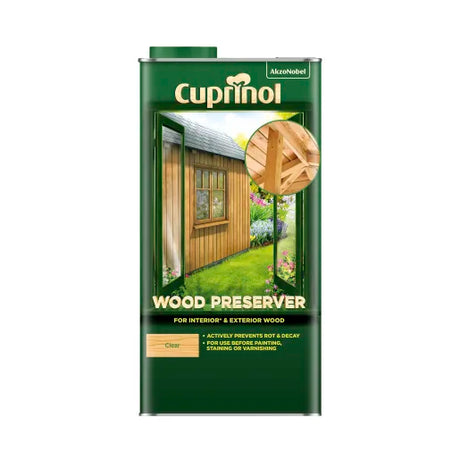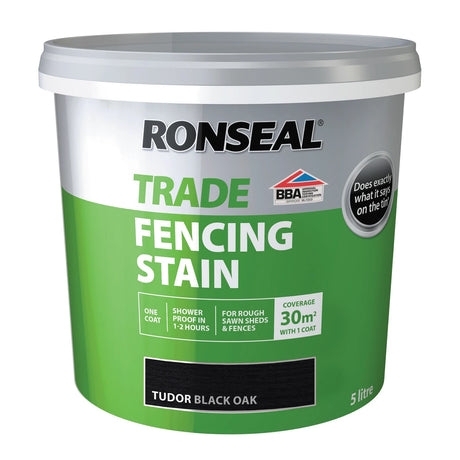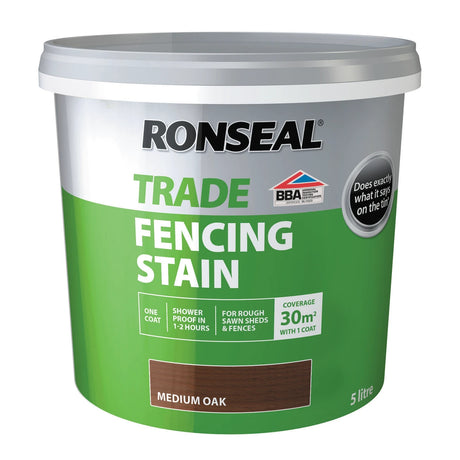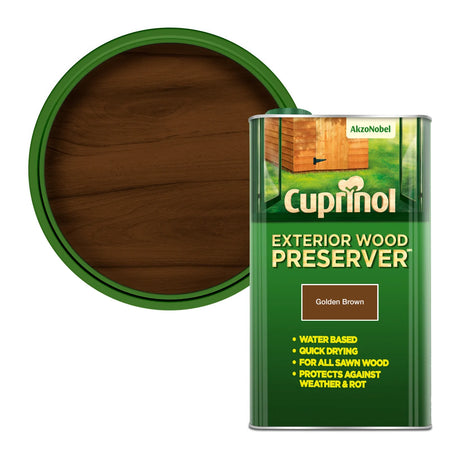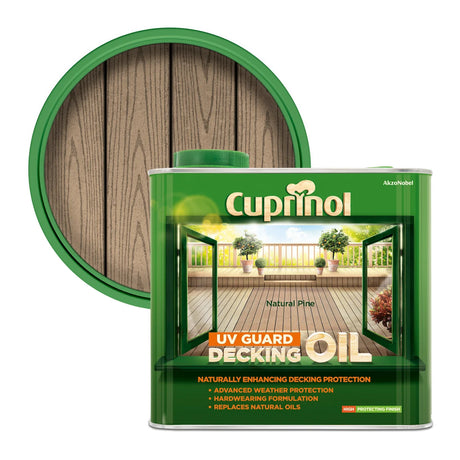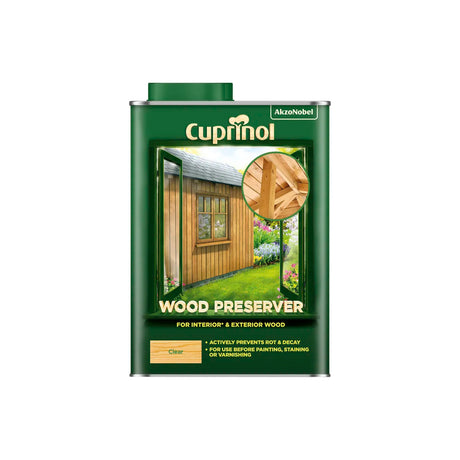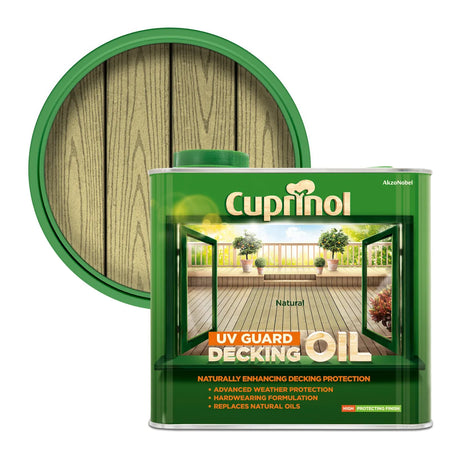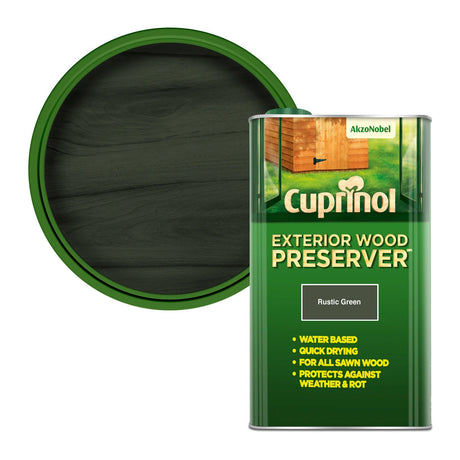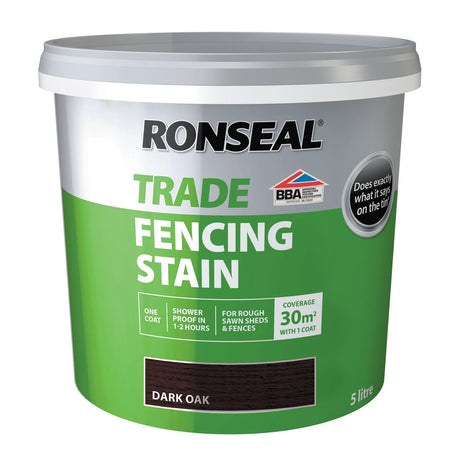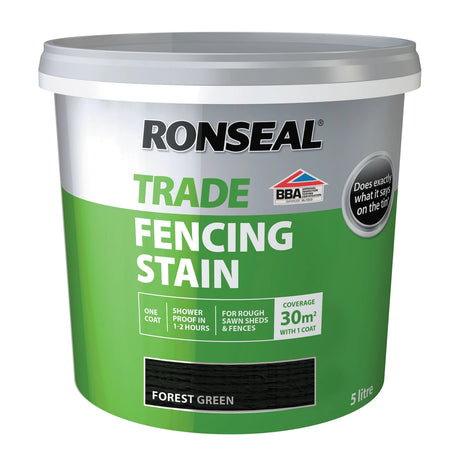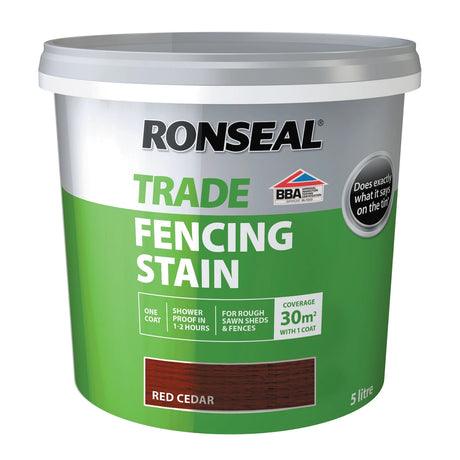Feather Edge Board - Pressure Treated (Brown) 22mm x 150mm x 1800mm (6ft)
£1.50 Ex VAT£2.01£1.80 Inc VAT£2.41Unit price£0.00 Inc VAT/UnavailableFeather Edge Board - Pressure Treated (Green) 22mm x 125mm x 1800mm (6ft)
£1.23 Ex VAT£1.48£1.48 Inc VAT£1.78Unit price£0.00 Inc VAT/UnavailableCuprinol Clear Wood Preserver - 5L - Clear
£34.02 Ex VAT£40.82 Inc VATUnit price£0.00 Inc VAT/UnavailableRONSEAL Fencing Stain Tudor Black Oak - 5L
£10.66 Ex VAT£12.79 Inc VATUnit price£0.00 Inc VAT/UnavailableRONSEAL Fencing Stain - 5L - Medium Oak
£8.28 Ex VAT£9.94 Inc VATUnit price£0.00 Inc VAT/UnavailableCuprinol Exterior Wood Preserver - 5 L - Golden Brown
£38.91 Ex VAT£46.69 Inc VATUnit price£0.00 Inc VAT/UnavailableCuprinol UV Guard Decking Oil - 2.5l - Natural Pine
£29.60 Ex VAT£35.52 Inc VATUnit price£0.00 Inc VAT/UnavailableCuprinol Clear Wood Preserver - 1L - Clear
£23.33 Ex VAT£28.00 Inc VATUnit price£0.00 Inc VAT/UnavailableCuprinol UV Guard Decking Oil - 2.5l - Natural
£28.10 Ex VAT£33.72 Inc VATUnit price£0.00 Inc VAT/UnavailableCuprinol Exterior Wood Preserver - 5 L - Rustic Green
£38.91 Ex VAT£46.69 Inc VATUnit price£0.00 Inc VAT/UnavailableRONSEAL Fencing Stain -5L - Dark Oak
£12.34 Ex VAT£14.81 Inc VATUnit price£0.00 Inc VAT/UnavailableRONSEAL Fencing Stain - 5L -Forest Green
£12.26 Ex VAT£14.71 Inc VATUnit price£0.00 Inc VAT/UnavailableRONSEAL Fencing Stain - 5L - Red Cedar
£12.33 Ex VAT£14.80 Inc VATUnit price£0.00 Inc VAT/Unavailable



